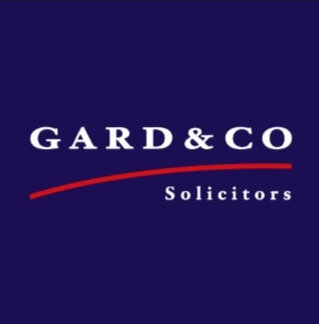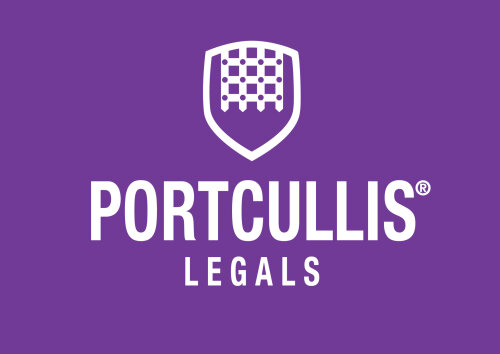Best Trusts Lawyers in Plymouth
Share your needs with us, get contacted by law firms.
Free. Takes 2 min.
List of the best lawyers in Plymouth, United Kingdom
About Trusts Law in Plymouth, United Kingdom
Trusts are legal arrangements where one or more individuals, known as trustees, hold and manage assets for the benefit of another person or group of people, called beneficiaries. In Plymouth, United Kingdom, trusts are commonly used for estate planning, tax mitigation, preserving family wealth, and charitable giving. The creation and management of trusts are governed by a combination of UK statute law and common law, including the Trustee Act 2000 and the Law of Property Act 1925. These laws apply throughout England and Wales, which includes Plymouth. Trusts can be highly beneficial but can also be complex, making professional legal advice essential.
Why You May Need a Lawyer
There are several situations where seeking advice from a trusts lawyer in Plymouth is recommended:
- Setting up a new trust to manage or distribute assets
- Administering a trust as a trustee, including navigating duties and responsibilities
- Making changes or variations to an existing trust
- Planning your estate to reduce inheritance tax liability
- Resolving disputes between trustees and beneficiaries
- Transferring property into or out of a trust
- Ensuring compliance with legal requirements and reporting obligations
- Protecting vulnerable beneficiaries, such as minors or those with disabilities
- Challenging or defending the validity of a trust
- Understanding the taxation of trusts
Given the complexity and the long-term effects of trust arrangements, experienced legal support can help avoid costly mistakes.
Local Laws Overview
Trusts in Plymouth are regulated by national laws covering England and Wales rather than specific local legislation. The Trustee Act 2000 sets out the duties and powers of trustees, including investment obligations and the duty to act in the best interests of beneficiaries. Other relevant laws include the Inheritance Tax Act 1984 and the Finance Acts, which govern the tax treatment of trusts. Trusts are also influenced by the Law of Property Act 1925 and principles developed through case law. While these laws apply nationally, local solicitors in Plymouth are familiar with unique regional considerations, such as property types, local courts, and administrative practices.
Frequently Asked Questions
What is a trust?
A trust is a legal arrangement where assets are managed by trustees for the benefit of beneficiaries, according to instructions set out in a trust document.
Why would I set up a trust?
Common reasons include protecting assets for future generations, minimizing inheritance tax, providing for children or vulnerable adults, or supporting charitable causes.
Can I be both a trustee and a beneficiary?
Yes, you can be both, but there are restrictions and potential conflicts of interest that need to be managed carefully.
How are trusts taxed in Plymouth, United Kingdom?
Trusts are subject to specific tax rules regarding income tax, capital gains tax, and inheritance tax. The way a trust is taxed depends on its type and structure.
Do trusts have to be registered?
Many trusts must be registered with HM Revenue & Customs’ Trust Registration Service, especially if they have UK tax liabilities or hold certain types of assets.
What are the main duties of a trustee?
Trustees must act in the best interests of beneficiaries, follow the terms of the trust, keep accounts, invest assets prudently, and comply with reporting obligations.
Can a trust be challenged in court?
Yes, trusts can be challenged, often on grounds of undue influence, lack of capacity, or failure to meet legal requirements.
How do I end a trust?
A trust can end when its terms are fulfilled or by court order. The process depends on the trust deed and the type of trust in question.
What is the difference between a discretionary trust and a bare trust?
In a discretionary trust, trustees have wide powers over who benefits and how. In a bare trust, beneficiaries have an immediate and absolute right to the assets.
Do I need a solicitor to create a trust?
While you are not legally required to hire a solicitor, trusts are complex legal documents and professional advice is highly recommended to ensure validity and avoid mistakes.
Additional Resources
For more information or support about trusts in Plymouth, consider these resources:
- HM Revenue & Customs (HMRC) - For trust registration and tax guidance
- The Law Society - For finding qualified solicitors in Plymouth
- The Charity Commission - For information on charitable trusts
- Citizens Advice Plymouth - For free legal advice and guidance
- Government publications and official guidance on trusts
Next Steps
If you believe that a trust could help you or your family, or if you are facing legal issues involving a trust, consider consulting with a specialist trusts solicitor in Plymouth. Gather relevant documents, list your objectives or concerns, and arrange an initial consultation to discuss your needs. Legal professionals can advise on setting up, managing, or ending a trust, as well as resolving any disputes or tax concerns. Taking prompt legal advice ensures your interests are protected and your actions comply with current laws.
Lawzana helps you find the best lawyers and law firms in Plymouth through a curated and pre-screened list of qualified legal professionals. Our platform offers rankings and detailed profiles of attorneys and law firms, allowing you to compare based on practice areas, including Trusts, experience, and client feedback.
Each profile includes a description of the firm's areas of practice, client reviews, team members and partners, year of establishment, spoken languages, office locations, contact information, social media presence, and any published articles or resources. Most firms on our platform speak English and are experienced in both local and international legal matters.
Get a quote from top-rated law firms in Plymouth, United Kingdom — quickly, securely, and without unnecessary hassle.
Disclaimer:
The information provided on this page is for general informational purposes only and does not constitute legal advice. While we strive to ensure the accuracy and relevance of the content, legal information may change over time, and interpretations of the law can vary. You should always consult with a qualified legal professional for advice specific to your situation.
We disclaim all liability for actions taken or not taken based on the content of this page. If you believe any information is incorrect or outdated, please contact us, and we will review and update it where appropriate.









